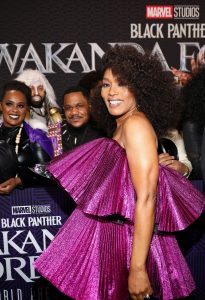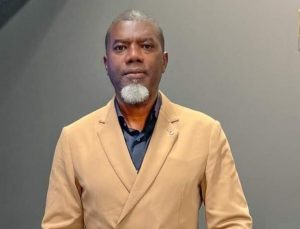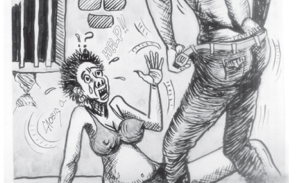Hassan Gumi | File Image
By Valentine Obienyem
If, by design, a universal destruction were to come upon all epistemic institutions in Nigeria, with the desire that only one institution should be saved, most people would choose the Nigerian Law School.
It remains one of the few institutions where one still goes through thorough distillation processes.
In the school, our faith in the saying that success has no shortcut is rekindled.
As part of the efforts to maintain its standards, the curriculum of the school includes Mandatory Court and Law Office Attachments.
The current set of students are now doing their Court Attachments.
The purpose is for them to observe how the courts function and the practical application of procedures – civil and criminal law, evidence, and other things.
It is also an opportunity to observe the working of the minds of judges and magistrates, etc.
Posted to the Abuja High Court with some of my colleagues, we had gone to court on that Monday, October 14, sartorially clad in our customary black.
We hoped to witness forensic battle and a bit of legal wit. Alas, the Abuja judiciary was celebrating the beginning of a judicial year.
As part of that celebration, we were told that the Lord Justices had gone for a commemorative service.
We waited. Shortly, on arrival, we were herded into the court premises by the Police Band.
Organised, the band marched in uniform steps. The bang from the big band threatened to cause deafness.
In full regalia, with due respect, your Lordships resembled old Roman generals on a triumphant march to celebrate critical victory.
My friend, seated beside me, drifted. Tongue in cheek, he said: “They resemble the Inquisitors, about to pronounce excommunication punishment due to heretic souls.”
The occasion formally started with the national anthem, rendered by the Police Band.
Also read: Court orders Senate to recall Senator Natasha
The impressive compere spoke to the crowd in a language which only late initiates could understand. To be fair to the neophytes – the rest of us – he was just speaking military abracadabra.
The fact that the police team (the band boys) carried guns made some of us feel certain apprehension about the “display.”
My “neighbour,” at home with mischief, started humming Fela’s song Zombie. Characterised by hilarious lines, Fela had a song about the military, including the police, as Zombie – capable of doing anything if commanded.
Since the band boys carried guns, supposing they were commanded to shoot at us – these were the cynical thoughts of some of our colleagues.
We just hoped that guns used for such purposes are not loaded. There is a need to circumvent the excesses of racially armed commanders.
As part of the celebration, your Lordships went round and shook hands with lawyers and lawyers present. Denied the privilege of that “judicial handshake,” some of us complained.
Shortly, the judges went for a special session. Clearly, they could not see us.
After such a touching event, we left.
On the second day, at exactly 9am, our judge, Justice Hassan Gumi, started the business.
He presided over cases with dispatch. That first encounter betrayed him as a man in love with discipline.
The almost-late coming and his time being wasted annoyed him. Welcoming us, we did not need any further engagement with Gumi because of other engagements, for he is also the chief administrator of the high court – the acting Chief Judge.
The knowledge that our judge is the numero uno in the system awakened in us the desire to know him more.
I do not know if Gumi is related to the famous Abubakar Gumi, noted for his unorthodox, outlandish views. My concern really is that he is the Acting Chief Judge because the Justice B. O. Babalakin Panel that examined the judiciary indicted the former Chief Justice.
Shall we recapitulate the charges against him? They revolve around lack of integrity.
The temptation is to join the plea that all indicted judges should be pardoned. But the need for justice overcomes this temptation.
We need a just society, and judges- who should be the purveyors of this society – should be above board.
As Augustine described the state without justice as “no better than a band of court robbers,” Aristotle sees man as a monster if separated from justice.
Justice B. O. Babalakin represents our society’s search for justice. This search, in all societies, remains a continuous one.
An ancient king, Cambyses, was at it too. So far as we can visualise him through the haze of time, he disliked injustice.
Cambyses condemned the wealthy Croesus to death. On seeing the injustice involved, he rejoined to save him, but though the sentence had not been carried out, he punished the officers who had delayed in executing it.
Determined to improve the integrity of the courts, Cambyses caused an unjust judge to be flayed alive, and used his skin to upholster the judicial chair so that all judges would vividly remember the punishment of corrupt judicial practices.
Cambyses struggled to curb either crime with what seemed to be such barbarous punishment, but perhaps those means had to be used to penetrate hard minds.
His subjects called him “the just,” perhaps he merited it if we separate justice from mercy. While not calling for extreme measures, the lesson inherent in that constant vigilance sustains justice.
On the third day, Gumi’s court was lively. Unlike the second day when counsel only sought adjournment, counsel crossed swords with impressive and forensic forcefulness.
These three days were enough for the sedulous to make all observations to be made concerning the judge, barristers, and the courts.
First, the judge. Justice Hassan Gumi, carries no useless weight.
He has no commanding height, but authority makes him seem taller.
Gumi has a perceptive and furnished mind, a genial manner, and an unaffected simplicity that shocks those about him.
His character is a rare union of administrative vigour and judicial acumen. Gumi puts on no airs, assumes no elegance.
His superiority to his environment is too conscious and manifest.
It is not the superiority of a Tyson that could force submission by the blow of his rude fist. No! Gumi’s superiority is a product of his intellect. A very sound judge, knowledgeable in both procedural and substantive law, he is in complete control of his court and gives lawyers hints on what to do with inviting admiration.
He is not just a court, but also a classroom. Gumi is both a judge and a teacher.
In doing all these, he does not act the “Happy Halet” because he recognises his role as an unbiased umpire.
Despite his busy schedule, Gumi finds time, now and then, to interact with students on attachment, asked them questions, and answer their questions.
His answers testify to a sharp, alert, and versatile mind.
He answers these questions with a sympathetic understanding of students’ struggles.
Gumi discusses with students freely. Unmindful of the accidents of superiority, he continuously advised us to read voraciously and not circumscribe ourselves to only legal books: “Read the Holy Koran and the Holy Bible not just because of their spiritual richness, but also because they teach good grammar,” he said.
.Obienyem wrote the article when he was a Law School student on Court attachment.
…………
valoa2000@yahoo.com












